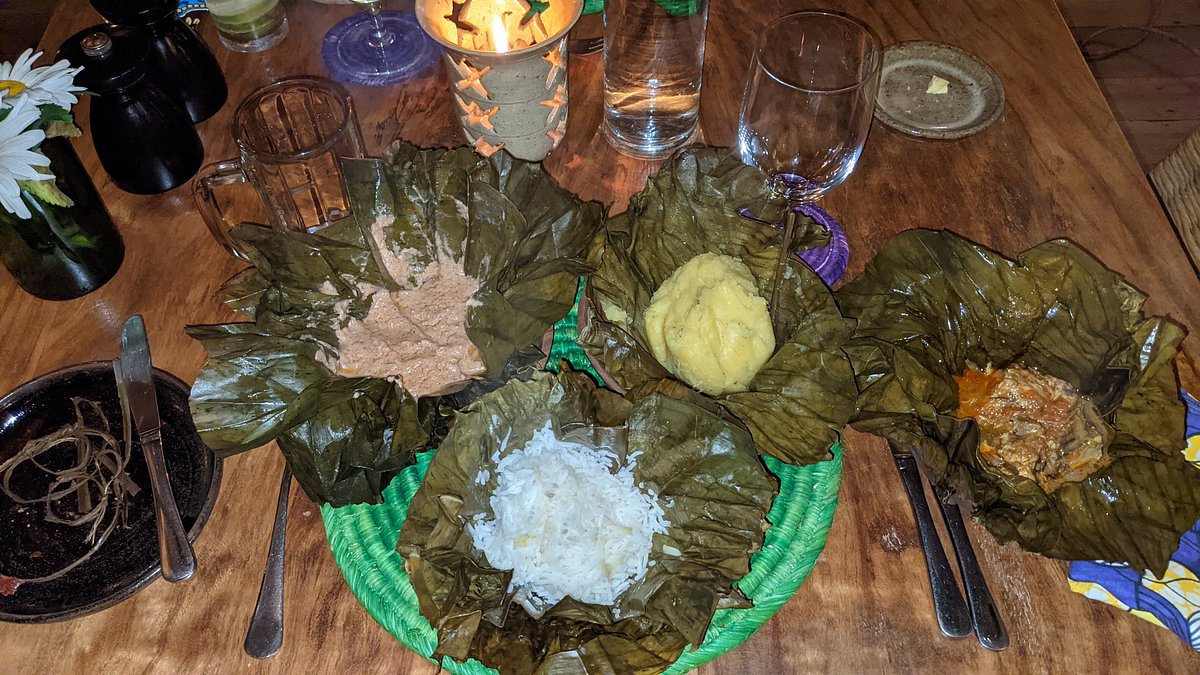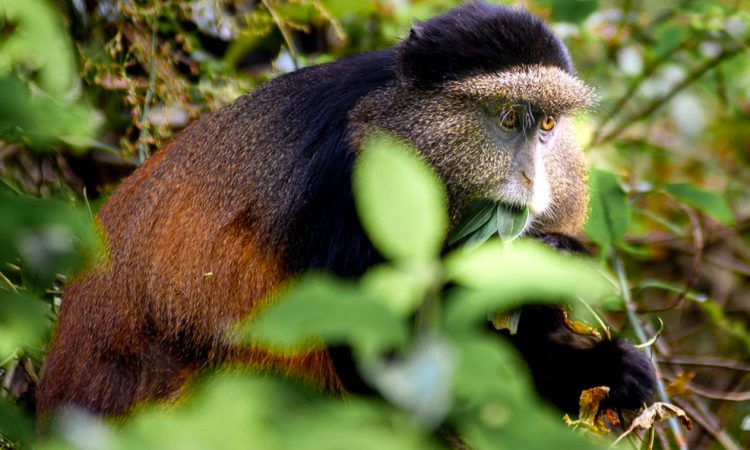Road Trip at Mgahinga Gorilla National Park: Local’s Guide for Foodies
A Culinary and Wildlife Adventure in Uganda
For travelers with an appetite for both authentic culinary experiences and wildlife adventure, a road trip to Mgahinga Gorilla National Park in southwestern Uganda provides a unique blend of cultural immersion, gastronomic discovery, and ecological exploration. This lesser-known gem of the Virunga volcanic region offers pristine landscapes, dense forests, and an intimate encounter with mountain gorillas, all while providing a vibrant local food scene deeply rooted in community practices.
Unlike conventional tourist itineraries, this journey emphasizes local knowledge, regional flavors, and hands-on engagement. For food enthusiasts, the road trip presents opportunities to savor traditional Ugandan dishes, explore community farms, and participate in cooking demonstrations. For wildlife lovers, it is a chance to traverse volcanic slopes, observe endemic species, and understand conservation dynamics in one of Africa’s most significant ecological hotspots.
Understanding Mgahinga Gorilla National Park
Mgahinga Gorilla National Park is part of the Virunga Conservation Area, characterized by steep volcanic mountains, bamboo forests, and rare wildlife. It shares borders with Rwanda and the Democratic Republic of Congo, creating a transboundary ecosystem critical for the survival of endangered species. The park is home to the iconic mountain gorillas, golden monkeys, and a variety of bird and plant species, making it a biodiversity haven.
For food-focused travelers, the park’s surrounding communities offer a culinary landscape shaped by volcanic soils, traditional agriculture, and seasonal harvests. Cassava, sweet potatoes, millet, and indigenous herbs dominate local cuisine, often combined with river fish, legumes, and seasonal vegetables. Understanding the ecological context provides insight into the interconnectedness of food, culture, and conservation, transforming the road trip into both a sensory and educational experience.
Planning the Road Trip: Routes and Accessibility
The journey to Mgahinga Gorilla National Park typically begins in Kampala or Kabale, with well-maintained roads offering scenic views of Uganda’s southwestern highlands. Travelers are advised to use reliable vehicles suited for mountainous terrain, as the road trip encompasses winding routes, terraced farmlands, and river crossings. Along the way, small towns and roadside stalls offer opportunities to sample fresh produce, traditional snacks, and regional delicacies, providing pauses for both nourishment and cultural engagement.
Local guides are invaluable for navigating routes, providing context about historical landmarks, and recommending culinary stops. Their expertise ensures that travelers experience authentic flavors while adhering to safety and logistical considerations. Timing is crucial; traveling during the dry season enhances accessibility and allows for uninterrupted exploration of both the park and surrounding communities.
Day 1: Arrival and Introduction to Local Cuisine
Upon arrival in the park’s vicinity, travelers are welcomed by community-run lodges and eco-friendly accommodations. These establishments often feature kitchens that showcase local ingredients, offering a first taste of the region’s culinary traditions. Guests are introduced to dishes such as matoke, roasted sweet potatoes, groundnut sauce, and fresh river fish, accompanied by traditional beverages brewed from millet or sorghum.
The evening is typically spent in a communal setting where cooking demonstrations and storytelling sessions allow travelers to observe preparation techniques, understand ingredient sourcing, and appreciate the cultural significance of meals. This introduction not only satisfies culinary curiosity but also establishes a foundation for immersive food exploration during the road trip.
Day 2: Exploring Surrounding Communities and Markets
The second day is dedicated to community engagement and market exploration. Travelers visit local villages where small-scale farms and family-run food enterprises offer insight into agricultural practices and dietary habits. Markets provide a lively environment to observe fresh produce, spices, and traditional culinary tools, while interactions with vendors and cooks reveal the stories behind regional recipes.
For food enthusiasts, this day emphasizes hands-on learning, including participation in vegetable harvesting, preparation of local delicacies, and sampling of freshly cooked meals. The focus is on understanding how community life, seasonal cycles, and ecological conditions shape culinary traditions, allowing travelers to connect taste with context and culture.
Day 3: Gorilla Trekking and Forest Immersion
The third day of the road trip introduces gorilla trekking, a highlight of Mgahinga National Park. Guided by expert trackers, travelers navigate dense bamboo and montane forests to locate mountain gorilla families. Ethical guidelines are emphasized to ensure minimal disturbance to wildlife and maximum safety for visitors.
The trek is both physically invigorating and emotionally rewarding, providing close observation of gorilla behavior, social dynamics, and ecological interactions. While the day is focused on wildlife, guides also provide information about edible plants, medicinal herbs, and forest-based ingredients that communities have utilized for generations, linking conservation knowledge with culinary heritage.
Day 4: Culinary Workshops and Foraging Experiences
After the physically demanding trek, the fourth day emphasizes cultural and culinary engagement. Travelers participate in workshops led by local cooks and community elders, exploring the preparation of staple dishes using traditional methods. Activities may include pounding millet, roasting tubers, preparing leafy vegetables, and brewing fermented beverages, all conducted in ways that are both interactive and educational.
Foraging excursions complement workshops, allowing travelers to identify wild edible plants, herbs, and fruits, deepening their understanding of indigenous knowledge and ecological sustainability. These experiences connect culinary practice to environmental stewardship, highlighting the region’s dependence on natural resources and the cultural ingenuity in utilizing them.
Day 5: Scenic Drives and Cultural Reflection
The final day of the road trip combines scenic drives with reflective cultural engagement. Travelers explore the volcanic slopes, crater lakes, and panoramic highlands surrounding Mgahinga, while stopping at vantage points, villages, and farms for experiential learning. Opportunities arise to taste freshly prepared meals in homesteads, observe traditional storage and preservation methods, and participate in communal meals that showcase regional hospitality.
Throughout the day, reflections are encouraged, integrating insights from gorilla trekking, culinary workshops, and community interactions. This synthesis ensures that the road trip concludes with a comprehensive understanding of local culture, gastronomy, and ecological awareness, leaving travelers with a multidimensional perspective of the region.
Luxury Considerations and Accommodation
Although the road trip emphasizes local engagement and culinary discovery, accommodations are chosen to ensure comfort and high-end amenities for travelers seeking a luxury experience. Eco-lodges, boutique resorts, and private cabins offer panoramic views of the Virunga volcanoes, gourmet dining, and curated services. These establishments balance sustainable design with luxury, allowing travelers to rest in comfort while remaining immersed in the natural and cultural environment.
Personalized arrangements, including private guides, tailored meal plans, and flexible itineraries, enhance the overall experience. Travelers benefit from luxury comfort without compromising authenticity, allowing for both relaxation and meaningful participation in local activities.
Health and Safety Considerations
Safety and well-being are essential components of a successful road trip to Mgahinga. Travelers are advised to maintain vaccinations, carry first aid kits, and follow guidance during trekking and cooking activities. Experienced guides provide protocols for wildlife encounters, forest navigation, and community engagement, ensuring that participants can enjoy activities safely and responsibly.
Accommodations and travel logistics are designed to minimize health risks and provide emergency support, allowing travelers to focus fully on the culinary, cultural, and ecological aspects of the journey without unnecessary concern.
Sustainable and Ethical Travel Practices
A road trip in Mgahinga emphasizes responsible tourism, ethical wildlife interaction, and support for local communities. Culinary activities are conducted in ways that respect traditional knowledge, minimize waste, and promote economic empowerment. Wildlife experiences adhere to strict conservation guidelines, ensuring that gorillas and other species are observed without disruption.
Travelers contribute positively by engaging with local markets, participating in educational initiatives, and supporting eco-friendly accommodations. These practices ensure that the road trip maintains a long-term impact on both the environment and the livelihoods of local communities, aligning luxury travel with ethical responsibility.
Photography and Storytelling Opportunities
For food and wildlife enthusiasts, Mgahinga offers rich opportunities for photography and storytelling. Scenic volcanic landscapes, forest trails, gorilla encounters, and market scenes provide visual narratives that capture the essence of the region. Ethical photography guidelines are emphasized, particularly around wildlife and community interactions, ensuring respect for both cultural norms and ecological sensitivity.
Travelers are encouraged to document experiences through photography, journaling, or digital storytelling, creating lasting memories that reflect the interconnectedness of food, culture, and conservation. These narratives enhance both personal reflection and the sharing of Uganda’s unique heritage with broader audiences.
Seasonal Insights and Timing the Road Trip
Timing the road trip is crucial for maximizing both culinary and wildlife experiences. Dry seasons, typically from December to February and June to August, offer better road conditions, accessible trekking trails, and active wildlife. Certain cultural festivals and harvest periods provide unique culinary experiences, allowing travelers to sample seasonal dishes and participate in community celebrations.
Seasonal planning ensures that activities are not disrupted by adverse weather and that travelers can engage meaningfully with local communities, conservation projects, and gastronomic traditions. Guides and local operators provide detailed recommendations to align travel dates with optimal ecological and cultural conditions.
A Multisensory Journey for Foodies and Adventurers
A road trip at Mgahinga Gorilla National Park combines culinary exploration, cultural engagement, and wildlife adventure, offering food enthusiasts an immersive and educational experience. Travelers savor traditional dishes, participate in community workshops, and trek through forests to observe endangered gorillas, creating a journey that appeals to all senses. The combination of scenic landscapes, hands-on learning, and authentic local encounters ensures that each moment contributes to a comprehensive understanding of the region’s heritage, ecology, and gastronomy.
For those seeking to explore Mgahinga fully while enjoying seamless logistics, curated culinary experiences, and guided wildlife adventures, booking through WildHorn Africa is highly recommended.






